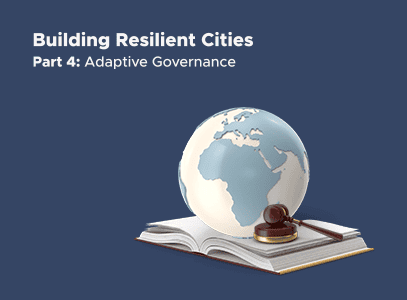Hong Kong, Boris Johnson, and More: Charter Cities Commentary
Hi everyone,
Hong Kong is in the news again, for unfortunate reasons. Beijing is poised to pass the National Security Law, which will abrogate the Basic Law which governs Hong Kong. While there is a great deal of uncertainty regarding how the National Security Law will be enforced, this is a sea change for Hong Kong and its relationship with China and the world.
Boris Johnson has stated that if the National Security Law is passed and enforced he will grant British National Overseas (BNO) status to three million Hong Kongers to ease migration to the UK. US Secretary of State Mike Pompeo is considering removing Hong Kong’s special status, which will cause the US government to see it as legally equivalent to mainland China, raising prices on trade and reducing its competitive advantage. Several Senators, including Ben Sasse and Tom Cotton, are pushing legislation to waive visas for Hong Kong migration to the US.
The Hong Kong situation has two interesting implications with regards to charter cities. First, it shows how the risk of expropriation never goes away. Second, for the first time since the Second World War, there will be a mass migration of skilled, high income workers, allowing for the possibility for the creation of a new city.
The risk of expropriation is one of the main challenges charter cities face. Whatever devolution of authority is legally agreed to, ultimately the host country has a monopoly on violence and will be able to change the terms of autonomy unilaterally. There are strategies to mitigate the risk of expropriation, and we will be publishing a risk mitigation guide soon, but the risk can never be eliminated.
Hong Kong is not facing expropriation per se, but instead subordination to the laws of Beijing under the guise of national security. Hong Kong faces this threat not because of its economic success, but because of political concerns.
Though Hong Kong is changing before our eyes, it should still be considered a success. It rose from an impoverished region after World War II to become a financial capital of the world, as well as inspiring the reforms in China which lifted 800 million people out of poverty. If I can contribute to the building of a city of seven million people that enjoys globally renowned prosperity for generations, I will consider my life a success.
The second implication of Beijing’s National Security Law is increased emigration from Hong Kong. One of the challenges in building a charter city is identifying the target population. I have been skeptical of new city developments in the Western world because the demographics aren’t there, as population growth is slow or negative throughout North America and Europe. Any new city development is competing with existing city centers which have existing agglomeration effects and infrastructure.
The coming Hong Kong migration therefore creates the opportunity to do something that hasn’t been done in the West for a generation, build a new city from scratch. Discussion about this idea is already brewing. Bruno Macaes, Sam Bowman, and Daniel Hannan argue for Britain to invite the Hong Kong people to build a charter city.
I’m pleased to let you know that this is more than just the ideation phase. In my personal capacity I’m working with the Victoria Harbor Group, a new company with the mission of building a new city to attract Hong Kongers who are interested in migrating abroad. I have built CCI to focus on governance in emerging markets. The Victoria Harbor Group is targeting high income countries and Hong Kongers hardly need help with governance. As such, I thought I’d better be able to help the Victoria Harbor Group working directly with them rather than via CCI.
My involvement with the Victoria Harbor Group does not change anything about CCI. I will continue in my leadership role at CCI and we will continue to execute on our plans. We are working on several great projects and believe the charter cities movement is at a very exciting inflection point. Numerous projects are moving dirt, building institutions, and we’re excited for how we can contribute to a future with more human flourishing.
For more information about the Victoria Harbor Group and our plans, check out this interview with Victoria Harbor Group CEO Ivan Ko in this article for City Journal. Expect to hear more from us over the coming weeks.
Links Roundup
Charter cities and innovative urban governance are a topic of discussion at the upcoming RadicalxChange conference on Saturday June 20 at 2pm EST. I’ll be joined on a panel by RxC Policy Advisor Paul Healy, Chapman University Law Professor Lan Cao, and economist Tom Rossman. Hope you can tune in live!
Amidst the chaos of protests and riots, an interesting new governance structure has emerged in Seattle, the Capital Hill Autonomous Zone (CHAZ). After repeated confrontations with protestors, Seattle police abandoned several square blocks which have been reclaimed by a group of Seattleites. The best way to understand CHAZ is as an attempt to LARP the Paris Commune.
The left is portraying CHAZ as a success. People are peacefully associating with each other, holding poetry readings, developing a communal farm, etc. No authority is necessary for people to peacefully live together. The right is portraying CHAZ as a failure. Raz, a Soundcloud rapper, has allegedly been dispensing extrajudicial justice without the apparent consent of the people. Without central authority, a mini warlord has already arisen.
Both stories likely have a degree of truth. The right consistently underestimates the human capacity for peaceful self-organization. The left underestimates the importance of hierarchy in self-organization. There are already reports that new autonomous zones are beginning to emerge in other cities.
Perhaps the most important takeaway is the value of cultural power when building new institutions. CHAZ exists because the dominant culture is sympathetic to it. A right-wing autonomous zone would be treated very differently by the media, though it might be treated much more cordially by law enforcement. Long term success of polities requires effective stakeholder management.
I was pleasantly surprised to read an article advocating to turn Mumbai into a charter city. Similarly, another article argued for an Ethiopian charter city as a strategy to reduce ethnic conflict. As the kids would say, “it’s happening.”
Tyler Cowen interviewed Paul Romer for a second time. Their discussion touches on charter cities where Romer questions the name and branding, as well as discussing how China’s Belt and Road is leading to charter cities. The interview is worth a read/listen.
I listened to a fascinating lecture by Manuel de Landa. It is difficult to summarize his ideas, but it included the most insights per minute about cities that I have experienced in a long time. Highly recommended.
Lastly, my friend Jonathan Hursh organized a great online conference on Emergent Cities with a fascinating number of speakers. Check it out!
As always,
Thank you for reading.







